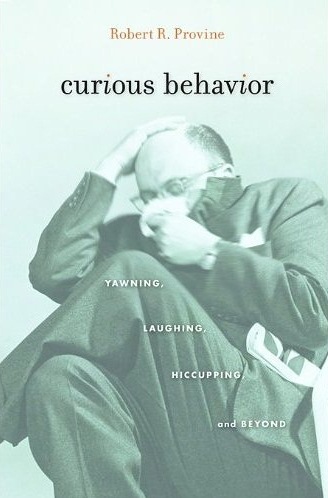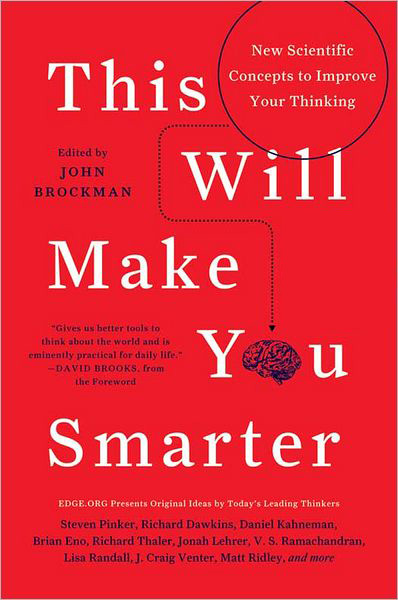 Psychology professor Robert Provine’s latest book Curious Behavior: Yawning, Laughing, Hiccupping, and Beyond, was published this month, and the professor’s exploration of seemingly small, instinctive actions has been covered in a variety of media outlets.
Psychology professor Robert Provine’s latest book Curious Behavior: Yawning, Laughing, Hiccupping, and Beyond, was published this month, and the professor’s exploration of seemingly small, instinctive actions has been covered in a variety of media outlets.
An August 14 New York Times review entitled “Pardon Me! A Fearless Look at Our Bodies’ Mundane Functions” said that the book is both entertaining and engaging, and that, “with its many facts and anecdotes and unexpected stories, it begs you to continue where curiosity leads you, down both the boulevards and the back alleys of science.” This article was reprinted in the independent Kenyan newspaper Daily Nation.
The book was also the subject of an August 12 Boston Globe story, “The professor of burps.” Provine spoke about how he chooses which behaviors to focus on in his research, saying that “if you’re interested in the neuromechanisms of human behavior, you want to look at behaviors that everyone has, everyone does in the same way, are simple, and easy to study.”
Provine also appeared on the radio program The Takeaway with John Hockenberry on August 20th to discuss the “instinctive acts” that humans engage in with various degrees of awareness and the value of researching such behaviors. “It’s easy to overlook the commonplace,” said Provine, “and in my book, I’ve explored those kinds of simple acts that can be pursued by anyone – whether high school science fair students or professional researchers – and provides some important, novel insights into human behavior.”
The book was also reviewed in the August 2nd issue of Nature, which called the book “an exercise in ‘small science’ — some of it speculative, all of it fascinating.” Other reviewers have characterized Provine’s book as “a must-have for any connoisseur of human behavior, whether studying in a classroom or from a barstool” (The Scientist, August 23rd), “charmingly written and profoundly informative” (The Wall Street Journal, August 25th), and “investigations [which] reveal captivating insights into the mundane” (The New Scientist, August 25th). A review in the Chronicle of Higher Education on August 30 said that Provine “tired of inserting electrodes into nerve cells in a laboratory, but wished to retain rigorous approaches in what he calls a “sidewalk neuroscience” mode of inquiry. Cheaply and simply, he observed such subjects as graduate students, for example—to track their behaviors.”
The book has also been excerpted on Salon on August 22nd and in the U.K. Observer on September 1. The Popular Science website also posted a slideshow of “curious behaviors” on September 5.
Provine was also interviewed for NBC’s “Body Odd” blog, in which, in a September 6 piece entitled “How hiccups, yawns and giggles make us human,” he said that his research is “a reminder that we humans, who find ourselves to be conscious and rational, are also beasts of the herd.”
Curious Behavior was also discussed in a September 7 post on the “Brain Pickings” blog, which called Provine’s areas of study “seemingly mundane but, in fact, utterly fascinating phenomena.”
Provine’s work was also the subject of a September 26 story on Slate.com entitled “I Giggle, Therefore I Am.” The author relates Provine’s research to the act of tickling his newborn son, writing that “what’s at work in tickling… is the neurological basis for the separation of self from other” and concluding that“when a baby senses a foreign hand lightly brushing his bare feet, he’s experiencing something that is recognizably other—which means that there’s something that isn’t other, too: There’s himself. Tickling is central to who we are, because it is part of how we establish that there’s a we there.”
Library Journal also reviewed Curious Behavior on September 15, calling it “a delectable presentation for all who love the territory between pop and hardcore science writing” and highly recommending it.
On October 13, Provine discussed Curious Bahavior with host Marty Moss-Coaneon WHYY’s “Radio Times.”
 Provine’s work was also noted in the August 2nd New York Times in a review of This Will Make You Smarter: New Scientific Concepts to Improve Your Thinking. The book is the latest in a series by the website Edge.org, which focuses on an annual question posed to today’s leading thinkers. This year’s question was “What scientific concept would improve everybody’s cognitive toolkit? “
Provine’s work was also noted in the August 2nd New York Times in a review of This Will Make You Smarter: New Scientific Concepts to Improve Your Thinking. The book is the latest in a series by the website Edge.org, which focuses on an annual question posed to today’s leading thinkers. This year’s question was “What scientific concept would improve everybody’s cognitive toolkit? “
This is Provine’s seventh contribution to the series, and his essay is entitled “TANSTAAFL” (“There ain’t no such thing as a free lunch”). It focuses on the fact that everything has its price, a concept relevant to everyday life as well as all sciences.
Tags: Psychology
